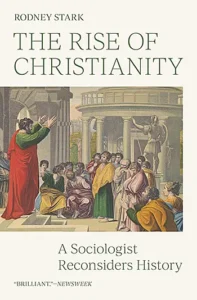 My life-long absolute favorite genre of literature, film, and computer gaming is science fiction. Sci-fi has captured my imagination since I was in 3rd grade or so when I would check out and voraciously consume stacks of novels by Heinlein, Asimov, Bradbury, and others from the El Paso Public Library — I have never outgrown my passion for the genre (to my wife’s dismay when selecting movies to watch). Star Trek, Star Wars, Dune, Lord Of The Rings, you name it, I love it! 🥰
My life-long absolute favorite genre of literature, film, and computer gaming is science fiction. Sci-fi has captured my imagination since I was in 3rd grade or so when I would check out and voraciously consume stacks of novels by Heinlein, Asimov, Bradbury, and others from the El Paso Public Library — I have never outgrown my passion for the genre (to my wife’s dismay when selecting movies to watch). Star Trek, Star Wars, Dune, Lord Of The Rings, you name it, I love it! 🥰
Among my favorite sci-fi authors is a man named Orson Scott Card. He is the author of Ender’s Game — one of my favorite sci-fi books, I might add, that has been released as a major motion picture — as well as a host of other books in that genre, not to mention biographies of biblical characters, and books on how to be successful at writing science fiction as an author. Card is widely acknowledged not only as a great author (numerous awards including the Hugo Award for science fiction), but also for his portrayals of characters who face and work through moral dilemmas. Tragically, he has become a victim of our prevalent cancel culture for his public comments opposing homosexuality, so any future movies are fairly unlikely.
 His Empire duet of novels are a fascinating mix of near-future science fiction and techno/military/ political thrillers. They are well worth reading. His astute analysis of the ideological polarization and abusive rhetoric rampant in the current state of US political dialogue is worth the price of admission alone.
His Empire duet of novels are a fascinating mix of near-future science fiction and techno/military/ political thrillers. They are well worth reading. His astute analysis of the ideological polarization and abusive rhetoric rampant in the current state of US political dialogue is worth the price of admission alone.
Card’s second book in this series, Hidden Empire, contains multiple references to concepts found in a book entitled The Rise of Christianity: A Sociologist Reconsiders History written by an eminent sociologist named Dr. Rodney Stark, a professor at Baylor University in Waco, TX until his death in 2022. Intrigued by the insights from Stark’s book Card presented in his novel, I first checked it out from the local library and read it, then bought it and reread it. I’ve collected quite a few of Dr. Stark’s books since then and have found them incredibly informative.
I’m not going analyze Stark’s book in-depth here — I’m simply going to hit the highlights of his conclusions because many of them are applicable to modern society and politics today. If you want to read the whole book and find out how he came to those conclusions, I’ve given you what you need to acquire or check out a copy of your own in the previous paragraphs. It’s not a particularly easy read due to some sociological jargon and a certain amount of academic textbook-ness in his writing style, but I feel the book is easily accessible to someone with 12th-grade reading level or better.
Christians Tended to Survive Major Epidemics While the Pagans Succumbed
In 165AD, a deadly 15-year epidemic (suspected to be smallpox) ravaged the Roman Empire, killing ¼ to ⅓ of the population. Another such epidemic (possibly measles) struck in 251AD. Modern historians attribute the massive depopulation resulting from these epidemics as one of the major causes for the fall of the Roman Empire. While the Romans had a degree of surgical knowledge, they were completely ignorant of the existence of bacterial and viral agents, much less methods of treatment and care. As a result, they were essentially helpless in the face of these epidemics.
Stark makes the case that 2nd- and 3rd-century Christians, virtually all of whom took seriously Christ’s command to love both one another and their neighbors, not only cared for their own members, but also those pagans who lived nearby, while the pagans abandoned their sick loved ones en masse to die alone and uncared for out of fear of contracting the disease themselves. So while the pagans were dying like flies, the Christians — who were also suffering through the same epidemic — provided basic hospice care (food, water, sanitation, human interaction) to those afflicted, thus greatly increasing both their own chances of survival as a group, as well as those pagans who had benefited from their care.
Stark’s Conclusion:
The mortality rate among Christians during deadly epidemics was significantly lower than that of pagans, thus shifting the demographics in favor of the Christians. On top of that, many of the pagan survivors who had received nursing care from these believers converted to Christianity.
Christian Women & Children vs. Their Pagan Counterparts
Pagan women in the Roman Empire were treated only slightly better than slaves and enjoyed almost no status within Roman society. Marriage was held in low esteem by pagans whereas Christians, in accordance with the Scriptures, sanctified it. In pagan society, male sexual promiscuity was rampant and socially acceptable, female promiscuity was rampant and socially unacceptable. On the other hand, Christians of both genders were forbidden from promiscuous behavior.
So while the pagan women had few rights, were killed off by the millions due to female infanticide, and forced to deal with cheating husbands with no legal or social recourse (here is a discussion on the modern-day equivalent), Christian women enjoyed greatly enhanced status within the Body of Christ because the Bible commands:
Husbands, love your wives, just as Christ also loved the church and gave Himself for her , that He might sanctify and cleanse her with the washing of water by the Word, that He might present her to Himself a glorious church, not having spot or wrinkle or any such thing, but that she should be holy and without blemish. So husbands ought to love their own wives as their own bodies; he who loves his wife loves himself. For no one ever hated his own flesh, but nourishes and cherishes it , just as the Lord does the church.
Ephesians 5:25-29 Husbands, likewise, dwell with them with understanding, giving honor to the wife, as to the weaker vessel, and as being heirs together of the grace of life, that your prayers may not be hindered . Finally, all of you be of one mind, having compassion for one another; love as brothers, be tender-hearted, be courteous; not returning evil for evil or reviling for reviling, but on the contrary blessing, knowing that you were called to this, that you may inherit a blessing.
1 Peter 3:7-9
A host of other NT Scripture passages declare women to be equal with men before the Lord, forbid adultery and other sexual misconduct, and in general exalt the family unit as holy in God’s sight.
Far from being subjugated, abused, betrayed, and suppressed by their husbands as the pagan wives were, Christian women were exalted to a place they had never experienced before in any society under any other religious system before or since. Unfortunately, as man’s religion has infiltrated the Body of Christ over the centuries, the subjugation of women has been re-established within many churches and is now justifiably condemned by those outside the Church.
On top of that, current estimates of the ratio of men to women through the major portion of the Roman Empire were 130-140 men per 100 women. Why did this disparity exist? Something quite similar to the current behaviors and birth control regulations in Red China: deformed male babies and many female babies were subject to infanticide. This practice was legal, morally accepted, and widely practiced by all social classes throughout the Empire. Many pagan families had only one surviving daughter, if any.
Add to that the infertility and high death rate among pagan women caused by both ancient abortion techniques and disease transmitted through primitive methods of contraception. Most of the abortion solutions — both pharmacological and mechanical — available to Roman women were extremely dangerous and as likely to kill the mother as the fetus. On top of that, most of the contraceptives of the day were either ineffective or toxic to the woman’s body. A then-popular form of contraception was anal sex. In a society knowing nothing of germs and their means of transmission, this was a prime disease vector among both men and women.
Stark’s Conclusion:
Christianity not only exalted women to a place of equality with men, it ensured Christian birthrates and adult lifespans were much higher than their pagan counterparts through the elimination of infanticide and abortion, as well as unsanitary contraception and sexual practices.
Christianity Homogenized the Disparate Cultures Within Roman Cities
The populations of Roman cities were a hodgepodge of people from a wide variety of ethnic backgrounds with different languages, cultures, religious beliefs/practices, life philosophies, and morality.
On top of that, Roman cities had the following characteristics:
- They were small in land area and highly over-populated.
- Of that small area, much of the city was given over to public buildings, monuments, and temples.
- The vast majority of the population lived in tenements, not the villas and palaces we see portrayed in films.
- Tenements frequently collapsed or burned to the ground due to poor construction materials/techniques, earthquakes, and the absence of effective fire departments.
- Many of the so-called “streets” were little better than footpaths.
- There was little or no privacy because whole families lived in a single room.
- Sanitation was terrible. Human and animal waste filled the streets, water was almost always contaminated, vermin were everywhere.
- Due to the extremely high death rate, the population was in a state of constant turnover.
- Those who did not die were constantly subject to chronic health problems, such as skin rashes, swollen eyes, and lost limbs.
- The cities were filled with crime, vice, and disorder.
- They were constantly plagued with natural and social disasters, such as attacks, fires, earthquakes, famines, epidemics, and devastating riots.
- The populations were seriously divided along ethnic lines
Stark’s Conclusion:
…Christianity served as a revitalization movement that arose in response to the misery, chaos, fear, and brutality of life in the urban Greco-Roman world…by providing new norms and new kinds of social relationships able to cope with many urgent urban problems. To cities filled with the homeless and impoverished, Christianity provided charity as well as hope. To cities filled with newcomers and strangers, Christianity provided an immediate basis for attachments. To cities filled with orphans and widows, Christianity provided a new and expanded sense of family. To cities torn by violent ethnic strife, Christianity offered a new basis for social solidarity. And to cities faced with epidemics, fires, and earthquakes, Christianity offered effective nursing services.
The Rise of Christianity
He goes on to assert that, of course, the woes of the cities did not cause the advent of Christianity, but:
…once Christianity did appear, its superior capacity for meeting these chronic problems soon became evident and played a major role in its ultimate triumph.
The Rise of Christianity
Stark’s Overall Conclusion: Christianity Has a Superior Theology to Competing Pagan Religions
Stark states how Christianity offered:
…a coherent culture that was entirely stripped of ethnicity . All were welcome without need to dispense with ethnic ties. Yet, for this reasons, among Christians ethnicity tended to be submerged as new, more universalistic, and indeed cosmopolitan, norms and customs emerged. In this way, Christianity first evaded and then overwhelmed the ethnic barrier that had prevented Judaism from serving as the basis for revitalization .
The Rise of Christianity
As we have discussed earlier, Christianity provided “…liberating social relations between the sexes and within families.” and that it “…greatly modulated class differences — more than rhetoric was involved when slave and noble greeted one another as brothers in Christ.”
But more than anything else,
…Christianity brought a new conception of humanity to a world saturated with capricious cruelty and the vicarious love of death.
Consider the martyrdom of Perpetua. Here we learn the details of the long ordeal and gruesome death suffered by this tiny band of resolute Christians as they were attacked by wild beasts in front of a delighted crowd assembled in the arena. But we also learn that had the Christians all given in to the demand to sacrifice to the emperor, and thereby been spared, someone else would have been thrown to the animals. After all, these were games held in honor of the emperor’s young son. And whenever there were games, people had to die. Dozens of them, sometimes hundreds.
Unlike the gladiators, who were often paid volunteers, those thrown to the wild animals were frequently condemned criminals, of whom it might be argued that they had earned their fates. But the issue here is not capital punishment, not even very cruel forms of capital punishment. The issue is spectacle — for the throngs in the stadia, watching people torn and devoured by beasts or killed in armed combat was the ultimate spectator sport, worthy of a boy’s birthday treat. It is difficult to comprehend the emotional life of such a people .
In any event, Christians condemned both the cruelties and the spectators . “Thou shalt not kill,” as Tertullian (De Spectaculis) reminded his readers. And, as they gained ascendancy, Christians prohibited such “games.” More important, Christians effectively promulgated a moral vision utterly incompatible with the casual cruelty of pagan custom .
Finally, what the Christianity gave to its converts was nothing less than their humanity. In this sense, virtue was its own reward .
The Rise of Christianity
My Own Conclusions
Regardless of how desperately atheists and so-called “progressives” try to spin their revisionist histories of the United States, this is a nation founded upon a morality and sociological insights unique to Christianity and its foundation, Judaism. Judeo-Christian concepts are deeply embedded in our Declaration of Independence, the US Constitution, as well as the Bill of Rights and its subsequent amendments, and throughout our legal system.
And as our society becomes more and more secularized in viewpoint, morality, and politics, the very issues Christianity resolved for the urban Greco-Roman world are now reasserting their presence in our communities.
Resurgence of Ethnic Strife & Class Hatreds
While Christian principles united our diverse nation into one culture and one language, the liberals’ misplaced emphasis on “cultural diversity” and “multilingualism” has created a renascence of ethnic divisiveness, hatred, and violence.
Liberal politicians and their tame lapdog media outlets with their emphasis on the “haves” and the “have nots” rather than the brotherhood of man have revived the fires of class hatred.
Disregard for Marriage & Its Consequences
The decline of society’s regard for the institution of marriage has resulted in rampant promiscuity and sexual perversion, whereas marriage and the family were considered sacred when American society was based in Judeo-Christian ethics. As a direct result, there is an epidemic of sexually transmitted diseases (STDs) throughout the world due the aforementioned promiscuity and sexual perversion. For example, just in America alone:
Since the beginning of the HIV and AIDS epidemic well over half a million people have died of AIDS in the United States of America — the equivalent of the entire population of Las Vegas . There are currently around 1.3 million people living with HIV in the United States of America and around ⅕ of these are unaware of their infection, posing a high risk of onward transmission.
AVERT.orgAt the beginning of the USA’s epidemic, AIDS primarily affected men who have sex with men (MSM). Today, MSM still account for around ¾ of HIV diagnoses among male adults and adolescents and the rate of HIV diagnoses among MSM is more than 44 times that of other men. According to one study published by the CDC in 2010, one in five MSM in the 21 cities surveyed has HIV and almost half are unaware of their status. Gay and bisexual men of all races are the only group where new infections are rising every year and it is thought this rising number of new infections is due to an increasing number of MSM having unprotected sex.
AVERT.org
Disregard for Human Life
The lies of Darwinism and moral relativism — along with their logical end results, socialism and “abortion on demand” — have cheapened the value of human life.
How cheap?
To the point where our headlines are constantly filled with accounts of murders: neighbors killing neighbors, parents killing their children and one another and children killing their parents and one another, often over the most trivial of issues. Add to that the constant drive-by shootings by gangs, predation by other criminals and mass-shootings in schools, churches, and other public venues. Not to mention the millions of innocent babies killed in the name of “choice.”
When Christianity was the ethical and moral standard of Western Civilization, a single human life was so precious all such behaviors were anomalies, not the norm.
Judaism, the foundation of Christianity, asserts human life is valuable because we are created in the image and likeness of God Himself (see Genesis 1:26). Christianity builds on that premise by asserting that, if only one human being had need of a Savior, God so loved that single individual He still would have sent His only begotten Son to die on the cross for him or her.
No one has or can set the value of human life any higher!
In stark contrast, every other world religion and philosophy — as well as the political ideologies based upon them — when distilled to their core values, regard human life as insignificant and worthless. One has to only look a the fruit of the societies held in sway by them to verify this claim as absolutely true in practice.
The two closely-related concepts “war crimes” and “humane treatment of enemy combatants” are distinctly Judeo-Christian concepts having no corresponding referent within non-Christian cultures. That’s why we have the Geneva and Hague Conventions for the treatment of enemy combatants — not the Beijing, Tokyo, New Delhi, or Mecca Conventions — and the International War Crimes Tribunal is located in The Netherlands, rather than an Asian or Middle Eastern country.
Don’t believe me?
Ask anyone who survived Auschwitz/Birkenau, Dachau, Bergen-Belsen, Treblinka, and the other Nazi death camps (the Nazi’s were pagan occultists, not Christians) or the survivors of the Bataan Death March and Cabanatuan in the Philippines, Changi in Singapore, and the other Japanese death camps. Or try talking to the survivors of Pol Pot’s Khmer Rouge regime in Cambodia, Mao’s Cultural Revolution, Stalin’s purges, the slave labor camps in North Korea, the political prisons of Castro’s Cuba, or the Soviet gulags in Siberia (all run by atheistic Communist nations). And so on…
Does that mean Judeo-Christian nations haven’t perpetrated war crimes and other atrocities? Not at all! But in such nations, such behaviors are anomalies, not the norm.
The Myth of Secular Humanism
Political and theological liberals are convinced human perfection and utopian society are achievable because of the demonic lie that man is inherently good.
One of my favorite sci-fi franchises, Star Trek, embodies this concept perfectly. It posits the fantasy we will eventually “outgrow” our social, economic, and political problems through education, science/technology, social engineering, and human effort. There will be no more wars, poverty, class distinctions, crime, racism, illiteracy, or illness, all due to human effort, human achievement, and out of the inherent goodness of human hearts. Ironically, the conflicts in each episode, all required for interesting storytelling, portray the very human traits which doom any attempts at a United Federation of Planets to utter failure. We only have to examine today’s United Nations (the institution upon which the Federation is conceptually based), one of the most corrupt and ineffective organizations on this planet, to see this reality in action.
Unfortunately, those who refuse to learn from history are doomed to repeat it. History — and the Bible — clearly demonstrate we as a species are too inherently selfish, too self-destructive to pull that off. Even our most altruistic motives and intentions are corrupted by our inescapable-apart-from-the-New-Birth utter selfishness. The Law of Unintended Consequences and Murphy’s Law reign supreme over our natural lives and for every “fix” we come up with, something worse in quality and quantity eventually takes its place. Every attempt at a utopian society throughout history has failed miserably for these very reasons.
The Only Path to Utopia
Theoretically speaking, the only way to achieve a utopia would be if the hearts and minds of its participants were transformed so that they are no longer selfish, no longer self-destructive, no longer corrupt. As the Bible asserts, the only way to achieve this end is through the lordship of Jesus Christ in the human heart — submitting ourselves to Him and personally knowing Him more completely on a day-by-day basis — thus changing our hearts and minds into ones looking a whole lot more like a loving, gracious, just, and merciful Savior than the way they do now. And those changed hearts and minds produce unselfish relationships through the very essence of God — LOVE — motivating, empowering, and permeating our behavior.
Even then, however, our flesh eventually screws things up beyond all recognition. Our only hope of a sustainable utopia will be the millennial reign of the Lord Jesus after He cleanses the earth of all who oppose him, both human and demonic.
The bad news for the lost souls on this planet is “that just ain’ta gonna happen.” The good news for we Christ-followers is we will indeed see true utopia take place on this earth during that eventual and inevitable age.
Conclusion
So will we ever get back to that place where Judeo-Christian ethics and morality reign supreme in this country? The jury is still out. It remains to be seen whether the Church will once and for all time abandon its hopelessness in the face of evil — not to mention its internal bickering over doctrine — and finally take up spiritual arms to transform our culture. Such a transformation will take place through prayer, the supernatural works of the Holy Spirit, and Christ-followers living a life of self-sacrificing love towards one another and the lost.
The bumper sticker asking, “Where are we going? And why are we in this hand-basket?” will be a incredibly tragic and very real destiny for billions, rather than a humorous commentary on modern society.
Thanks for reading!
HIV/AIDS statistics courtesy of AVERT.org


